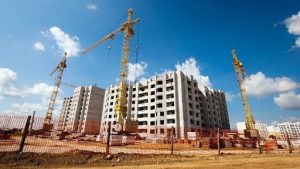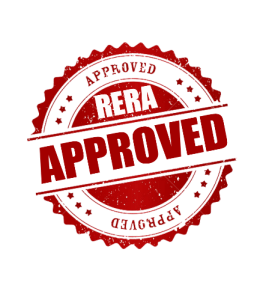The Real Estate (Regulation and Development) Act, 2016 (RERA Act), reshaped the Indian property market by introducing accountability, disclosure, and strict timelines for developers. One of its core provisions is the requirement for mandatory registration of real estate projects. Whether it is a residential tower, a commercial complex, a plotted development, or a township, the law clearly defines when a project must register under RERA before any promotion, marketing, or sale.
Also Read: MahaRERA 2025: RERA Maharashtra Registration, Complaint, Projects & Agents
Understanding exact registration conditions is crucial for buyers and developers because non-registered projects cannot be legally advertised or sold. RERA registration ensures clarity about carpet area, project approvals, financial security of buyer payments, and possession timelines. This detailed guide breaks down every aspect of when registration is compulsory, where exemptions apply, and how it affects flats, plots, redevelopment, joint ventures, phases, and commercial projects.
What Are the Basic Conditions That Make RERA Registration Mandatory?

RERA registration applies to any real estate project that meets one or more of the following:
- The land area exceeds 500 sq. m.
- The number of proposed apartments exceeds eight.
- The promoter intends to advertise, market, sell, or offer units to the public.
- The project does not have a Completion Certificate.
- The development is meant for public sale and not personal use.
- Construction involves creating units or plots for consideration from buyers.
If any of these apply, the project cannot be sold or promoted until RERA registration is completed.
Which Types of Projects Must Be Registered Under RERA?

All major development categories fall under compulsory registration when they cross the statutory limits. These include:
- Residential buildings with more than eight flats.
- Commercial buildings such as shops, offices, and showrooms.
- Plotted developments offering internal infrastructure.
- Row houses and villa developments.
- Townships or multi-phase projects.
- Ongoing projects without Completion Certificates on the date RERA came into effect.
- Redevelopment projects where additional saleable inventory is created.
- Joint venture or collaboration developments being marketed to buyers.
Also Read: RERA 2.0: Refunds, Delays, and Buyer Rights in 2025-26
Which Projects Are Not Required To Be Registered Under RERA?
Some projects fall under clearly defined exemptions. These include:
- Projects with up to eight apartments.
- Land development up to 500 sq. m.
- Renovation, repair, or restoration work that does not create new units.
- Projects with a Completion Certificate prior to the RERA Act.
- Pure redevelopment for existing tenants without new inventory for sale.
- Projects built for personal use without any sale component.
- Sale of raw land without any development promise.
- Industrial or warehousing units developed for self-use.
Is RERA Approval Mandatory for Flats?
Yes. Flats in any building that meets RERA conditions must be registered before being marketed. Every residential unit in an eligible project must be sold only after the project has obtained its valid RERA number. Buyers should verify this number directly on the official state RERA website to ensure that the project is legally compliant.
Is RERA Approval Mandatory for Plots?
Plotted developments must register under RERA when:
- The layout exceeds 500 sq. m.
- Infrastructure is being promised, such as roads, water lines, drainage, or electricity.
- The promoter markets or advertises the plots.
- The plots are being sold as part of a planned development.
Raw agricultural land sold without development obligations is generally exempt, but any plotted development with amenities falls under mandatory registration.
Is RERA Applicable for Plots in Maharashtra?
In Maharashtra, plotted layouts require registration if the developer creates internal development works or the plot count exceeds eight. Only land sold without development falls outside regulation. Any layout marketed as a residential or commercial plot scheme must be listed under MahaRERA before promotion.
Is RERA Approval Mandatory for Plots in Tamil Nadu?
Tamil Nadu mandates RERA approval for plotted developments that involve sanctioned layouts, internal roads, drainage, utilities, or amenities. Layouts marketed to buyers must be registered before sale. Only non-developed agricultural land sold without layout approval is exempt.
Is RERA Applicable for Plots in Karnataka?
Plotted developments in Karnataka require registration when they involve internal development work or exceed statutory limits. Layouts advertised for sale must be registered on the state RERA portal. Land sold without any development obligation is exempt.
Is RERA Registration Mandatory for Commercial Projects?
Yes. Commercial units such as shops, offices, retail spaces, studios, and commercial floors must register if they are being sold to buyers. The Act treats commercial and residential projects equally in terms of registration requirements.
Also Read: NRI Real Estate Investment Guide: TDS | Repatriation | RERA Rules
Do Redevelopment Projects Require RERA Registration?

Redevelopment must be registered when:
- New saleable units are created for outside buyers.
- The project adds more than eight flats or crosses 500 sq. m.
- The developer advertises or promotes the project.
Redevelopment meant exclusively for existing tenants without outside sale is exempt.
Do Joint Venture or Collaboration Projects Require Registration?

Any joint development or collaboration agreement requires RERA registration if the project is marketed to the public. Both the landowner and the developer must disclose their roles, and the project must meet all legal requirements before advertising or sale.
What Are the RERA Registration Requirements for Builders?
Developers must submit a detailed set of disclosures and documents, including:
- Ownership documents and title reports.
- Sanctioned layout plans and building plans.
- Approvals from municipal authorities.
- Carpet area and unit-wise specifications.
- Financial details including dedicated project bank accounts.
- Background information of promoters and past projects.
- Draft agreement for sale.
- Development timeline with milestones.
RERA assesses the accuracy of these submissions before granting approval.
Also Read: What Is the Process to File a Complaint Under RERA?
What Documents Are Required for RERA Registration?

Project registration requires:
- PAN and Aadhaar of promoter
- Title deed
- Title search report
- Encumbrance certificate
- Approved layout and building plans
- Commencement certificate
- Unit-wise carpet area
- Project photographs
- Project financial statements
- Draft allotment letter and agreement for sale
How Do Developers Get RERA Approval for a Project?

The registration process involves:
- Filing an application on the state RERA portal.
- Uploading all required documents.
- Providing financial details.
- Paying registration fees.
- Digitally signing disclosures.
- Awaiting verification.
- Receiving the official RERA registration number.
The project can be marketed only after the certificate is issued.
What Is RERA Agent Registration and How Does It Work?
Agents who assist in selling RERA-registered projects must also register. This includes individual agents and brokerage firms. They must provide identification documents, business details, an affidavit of compliance, and pay the applicable fees set by each state.
In Maharashtra, registration fees differ for individuals and firms. Once approved, the agent receives a RERA registration certificate, which must be presented whenever facilitating sales.
Also Read: What Is the New Central RERA Portal and How to Use It?
Conclusion
Mandatory RERA registration has become a defining standard for transparency in Indian real estate. Whether it is a multi-storey apartment building, a plotted development, a commercial project, or a redevelopment scheme, RERA registration ensures that buyers receive verified information and legal protection throughout the process. Developers must disclose land titles, sanctioned plans, timelines, carpet areas, and financial arrangements before selling units, reducing misrepresentation and ambiguity. Plotted developments, which were earlier prone to irregularities, now require full registration when marketed with infrastructure or amenities across states such as Maharashtra, Karnataka, and Tamil Nadu.
RERA has strengthened buyer confidence, professionalised developer conduct, and created a structured environment where delays, misinformation, and risks are significantly reduced. Platforms like Housiey further simplify the process by offering verified project information, direct builder connections, and transparent guidance.
Readers seeking a deeper understanding of compliance obligations can also explore the detailed guide on RERA Broker and Agent Regulation.
FAQs
The Real Estate (Regulation and Development) Act, 2016 (RERA Act), reshaped the Indian property market by introducing accountability, disclosure, and strict timelines for developers. One of its core provisions is the requirement for mandatory registration of real estate projects. Whether it is a residential tower, a commercial complex, a plotted development, or a township, the law clearly defines when a project must register under RERA before any promotion, marketing, or sale.
Also Read: MahaRERA 2025: RERA Maharashtra Registration, Complaint, Projects & Agents
Understanding exact registration conditions is crucial for buyers and developers because non-registered projects cannot be legally advertised or sold. RERA registration ensures clarity about carpet area, project approvals, financial security of buyer payments, and possession timelines. This detailed guide breaks down every aspect of when registration is compulsory, where exemptions apply, and how it affects flats, plots, redevelopment, joint ventures, phases, and commercial projects.
What Are the Basic Conditions That Make RERA Registration Mandatory?

RERA registration applies to any real estate project that meets one or more of the following:
- The land area exceeds 500 sq. m.
- The number of proposed apartments exceeds eight.
- The promoter intends to advertise, market, sell, or offer units to the public.
- The project does not have a Completion Certificate.
- The development is meant for public sale and not personal use.
- Construction involves creating units or plots for consideration from buyers.
If any of these apply, the project cannot be sold or promoted until RERA registration is completed.
Which Types of Projects Must Be Registered Under RERA?

All major development categories fall under compulsory registration when they cross the statutory limits. These include:
- Residential buildings with more than eight flats.
- Commercial buildings such as shops, offices, and showrooms.
- Plotted developments offering internal infrastructure.
- Row houses and villa developments.
- Townships or multi-phase projects.
- Ongoing projects without Completion Certificates on the date RERA came into effect.
- Redevelopment projects where additional saleable inventory is created.
- Joint venture or collaboration developments being marketed to buyers.
Also Read: RERA 2.0: Refunds, Delays, and Buyer Rights in 2025-26
Which Projects Are Not Required To Be Registered Under RERA?
Some projects fall under clearly defined exemptions. These include:
- Projects with up to eight apartments.
- Land development up to 500 sq. m.
- Renovation, repair, or restoration work that does not create new units.
- Projects with a Completion Certificate prior to the RERA Act.
- Pure redevelopment for existing tenants without new inventory for sale.
- Projects built for personal use without any sale component.
- Sale of raw land without any development promise.
- Industrial or warehousing units developed for self-use.
Is RERA Approval Mandatory for Flats?
Yes. Flats in any building that meets RERA conditions must be registered before being marketed. Every residential unit in an eligible project must be sold only after the project has obtained its valid RERA number. Buyers should verify this number directly on the official state RERA website to ensure that the project is legally compliant.
Is RERA Approval Mandatory for Plots?
Plotted developments must register under RERA when:
- The layout exceeds 500 sq. m.
- Infrastructure is being promised, such as roads, water lines, drainage, or electricity.
- The promoter markets or advertises the plots.
- The plots are being sold as part of a planned development.
Raw agricultural land sold without development obligations is generally exempt, but any plotted development with amenities falls under mandatory registration.
Is RERA Applicable for Plots in Maharashtra?
In Maharashtra, plotted layouts require registration if the developer creates internal development works or the plot count exceeds eight. Only land sold without development falls outside regulation. Any layout marketed as a residential or commercial plot scheme must be listed under MahaRERA before promotion.
Is RERA Approval Mandatory for Plots in Tamil Nadu?
Tamil Nadu mandates RERA approval for plotted developments that involve sanctioned layouts, internal roads, drainage, utilities, or amenities. Layouts marketed to buyers must be registered before sale. Only non-developed agricultural land sold without layout approval is exempt.
Is RERA Applicable for Plots in Karnataka?
Plotted developments in Karnataka require registration when they involve internal development work or exceed statutory limits. Layouts advertised for sale must be registered on the state RERA portal. Land sold without any development obligation is exempt.
Is RERA Registration Mandatory for Commercial Projects?
Yes. Commercial units such as shops, offices, retail spaces, studios, and commercial floors must register if they are being sold to buyers. The Act treats commercial and residential projects equally in terms of registration requirements.
Also Read: NRI Real Estate Investment Guide: TDS | Repatriation | RERA Rules
Do Redevelopment Projects Require RERA Registration?

Redevelopment must be registered when:
- New saleable units are created for outside buyers.
- The project adds more than eight flats or crosses 500 sq. m.
- The developer advertises or promotes the project.
Redevelopment meant exclusively for existing tenants without outside sale is exempt.
Do Joint Venture or Collaboration Projects Require Registration?

Any joint development or collaboration agreement requires RERA registration if the project is marketed to the public. Both the landowner and the developer must disclose their roles, and the project must meet all legal requirements before advertising or sale.
What Are the RERA Registration Requirements for Builders?
Developers must submit a detailed set of disclosures and documents, including:
- Ownership documents and title reports.
- Sanctioned layout plans and building plans.
- Approvals from municipal authorities.
- Carpet area and unit-wise specifications.
- Financial details including dedicated project bank accounts.
- Background information of promoters and past projects.
- Draft agreement for sale.
- Development timeline with milestones.
RERA assesses the accuracy of these submissions before granting approval.
Also Read: What Is the Process to File a Complaint Under RERA?
What Documents Are Required for RERA Registration?

Project registration requires:
- PAN and Aadhaar of promoter
- Title deed
- Title search report
- Encumbrance certificate
- Approved layout and building plans
- Commencement certificate
- Unit-wise carpet area
- Project photographs
- Project financial statements
- Draft allotment letter and agreement for sale
How Do Developers Get RERA Approval for a Project?

The registration process involves:
- Filing an application on the state RERA portal.
- Uploading all required documents.
- Providing financial details.
- Paying registration fees.
- Digitally signing disclosures.
- Awaiting verification.
- Receiving the official RERA registration number.
The project can be marketed only after the certificate is issued.
What Is RERA Agent Registration and How Does It Work?
Agents who assist in selling RERA-registered projects must also register. This includes individual agents and brokerage firms. They must provide identification documents, business details, an affidavit of compliance, and pay the applicable fees set by each state.
In Maharashtra, registration fees differ for individuals and firms. Once approved, the agent receives a RERA registration certificate, which must be presented whenever facilitating sales.
Also Read: What Is the New Central RERA Portal and How to Use It?
Conclusion
Mandatory RERA registration has become a defining standard for transparency in Indian real estate. Whether it is a multi-storey apartment building, a plotted development, a commercial project, or a redevelopment scheme, RERA registration ensures that buyers receive verified information and legal protection throughout the process. Developers must disclose land titles, sanctioned plans, timelines, carpet areas, and financial arrangements before selling units, reducing misrepresentation and ambiguity. Plotted developments, which were earlier prone to irregularities, now require full registration when marketed with infrastructure or amenities across states such as Maharashtra, Karnataka, and Tamil Nadu.
RERA has strengthened buyer confidence, professionalised developer conduct, and created a structured environment where delays, misinformation, and risks are significantly reduced. Platforms like Housiey further simplify the process by offering verified project information, direct builder connections, and transparent guidance.
Readers seeking a deeper understanding of compliance obligations can also explore the detailed guide on RERA Broker and Agent Regulation.
FAQs













